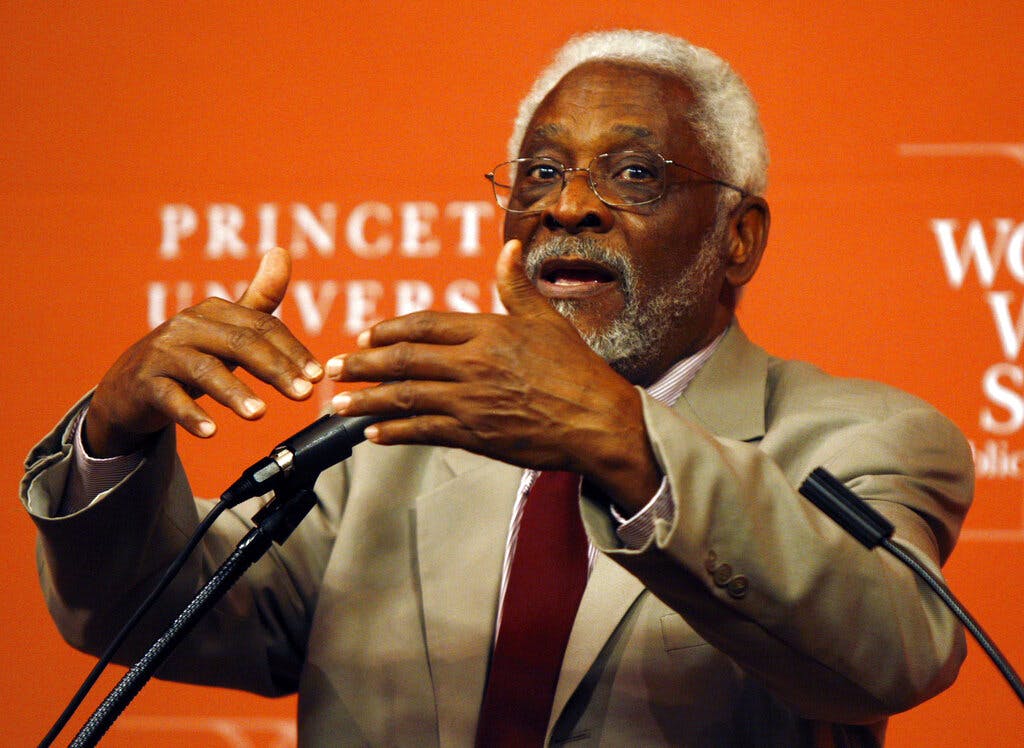The Right Man for Haiti
The Times ignores accusations of corruption that have dogged Aristide for years. Reforms and the restoration of civil society will need to precede the reckoning of what France, or anyone else, owes Haiti.

The effort by the Times, in a special on Haiti, to paint the former president, Jean-Bertrand Aristide, a hero in Haiti’s campaign for reparations strikes us as an error. Not that we aren’t otherwise delighted to see the Times follow the “Secret History of Haiti” published nine months ago by our columnist Raymond Joseph. The Times did a lot of work to mark and brilliantly illustrate the centuries of extortion that doomed Haiti to failure as a state.
In the Sun last summer, Mr. Joseph traced the debt with which France saddled Haiti after a slave revolt won the colony’s independence in 1804. The French claimed Haiti owed them 150 million francs, citing “property loss, including slaves,” Mr. Joseph wrote. In 1825, King Charles X sent an armada that “moored in the bay of Port-au-Prince ready to reduce the Haitian capital into ashes” were the former colony to refuse to acknowledge the debt.
“Thus was Haiti’s economy mortgaged from the beginning of its existence as a nation,” Mr. Joseph writes. The Times took up the thread in its special section on Haiti’s debt, titled “The Ransom.” The Times found that the ex-colony had paid on its debt to France 112 million francs, the equivalent of $560 million today. It estimates that this sum, had it remained in Haiti, “would have added $21 billion to Haiti’s economy over the years.”
The Times observes that “for generations,” Haitians “were forced to pay the descendants of their former slave masters.” The Times estimates that “if Haiti had not been forced to pay” the French debt, “the country could have mirrored the growth rates of its neighbors across Latin America.” The Times reckons that foregone economic growth over the past two centuries as “a $115 billion loss for Haiti.”
In 2003, the Times relates, Haiti’s then-president, Mr. Aristide, began “a campaign demanding that France repay the money it had extracted.” He decried Haiti’s “abject misery tied to 1825” and tabulated the amount due to be $21.7 billion, a sum “mocked by French diplomats.” France dismissed the claim “as the ploys of a demagogue.” In 2004, “the French government helped remove Mr. Aristide from power,” the Times reported.
“‘Reparations!’ He Cried — Then Was Out” is how the Times sums up Mr. Aristide’s story. The Times’ account overlooks how Mr. Aristide’s rule in Haiti had become dictatorial, with violent repression of dissent. It led to a “‘long-simmering crisis,” as the White House put it, “largely of Mr. Aristide’s making.” Said the White House: It “called into question” Mr. Aristide’s “fitness to continue to govern Haiti.”
The Times ignores accusations of corruption that have dogged Mr. Aristide for years, chronicled by, among others, the Wall Street Journal’s Mary Anastasia O’Grady. In an editorial issued in 2011 and titled “The Curse of Aristide,” the Journal advised American authorities to “investigate the many allegations against him for corruption, human rights violations, and worse.” In 2014, a Haitian judge put him under house arrest, though the case fizzled.
While Mr. Aristide’s earlier campaign for restitution had failed, he now tells the Times he has “seeded the field” and “it’s not finished.” Mr. Joseph contends reparations from France “would go a long way in lifting the curse and stopping the plunge into a ‘failed state.’” He even hopes that with an infusion of money “Haiti can reclaim its old moniker of ‘Pearl of the Antilles.’” Yet Mr. Aristide is surely not the man to lead this crusade.
The Sun’s view is that reforms and the restoration of civil society will need to precede the reckoning of what France, or anyone else, owes Haiti. This is going to require the establishment of a provisional authority to govern the country and the installation of an interim head of state. At the moment there is no legitimate head of state to receive any reparation, even if a court or legislatures conclude they’re owed.
We’ve already endorsed Mr. Joseph for president as interim head of state. He is one of the greatest tribunes of democracy of his, or any, time. He holds degrees from Moody Bible Institute and the University of Chicago. He did the first translation of the New Testament into Creole. His Haiti-Observateur deserves the Nobel Prize. At 90, Mr. Joseph is fully engaged in Haiti’s struggle and beyond the temptations that have felled lesser mortals.

